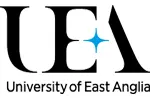

the United Kingdom
University of East Anglia (UEA)| The award | How you will study | Study duration | Course start | Domestic course fees | International course fees |
|---|---|---|---|---|---|
| MSc | Part-time | - | - | - | - |
Study
Taught by a team of internationally-renowned natural scientists, policy analysts and economists, this Master's degree draws upon research and applied work from the School of International Development and the Tyndall Centre for Climate Change Research. Its interdisciplinary approach ensures students can collaborate with UEA's School of Environmental Sciences through science-based modules on climate change. There may be the opportunity for some students to participate in a UNFCCC meeting.
Structure
This Master's course requires students to undertake compulsory and optional modules, an examination and to produce a dissertation. Optional seminars, workshops and sessions are offered throughout the programme for teaching and strengthening student essay and dissertation writing skills. The School of International Development addresses contemporary challenges via multi/interdisciplinary approaches, where research is organised into a series of Research Groups. Students also have the option of undertaking a professional internship during June and August.
Teaching
The School of International Development at the University of East Anglia is a globally renowned department for teaching, research and consultancy on international development. Research in the School addresses challenges in developing and transition economies via disciplinary and multi/interdisciplinary approaches. Excellent staff:student ratios and teaching methods mean this School offers small class sizes and a friendly learning environment.
Employability
The MSc Climate Change and International Development degree has been designed to meet the career needs of people working in international development and climate change policy and practice. Graduates have been successful in entering employment including working for organisations such as the World Bank, the United Nations, DfID, JICA, Christian Aid, and Save the Children. UEA offer a series of regular seminars on 'Working in Development', with guest speakers from development agencies and there is also specific support for international students in their transition to studying in the UK.
Below are some suggested courses at other providers that you may also be interested in:
Sustainable and Resilient Pavement Engineering (SURPAVE) (Erasmus Mundus) Master
University of Antwerp
Find out moreMarketing Management - Digital Business Concepts Bachelor Degree
Fontys Economy Tilburg
Find out moreIf you do not meet the entry requirements for this course then consider one of these postgraduate preparation courses from another institution:
Graduate Diploma of Engineering (Safety, Risk and Reliability)
Engineering Institute of Technology
Find out morePre-Master's Programme in Business, Economics, Finance and Management
ONCAMPUS Southampton
Find out moreThere are 413 other courses listed from University of East Anglia (UEA). A selection of these are displayed below:
Adult Literacy, Lifelong Learning and Development: International Perspectives MA
University of East Anglia (UEA)
Find out moreJoin the StudyLink email list and never miss a chance to turn your study abroad dreams into reality!

Find out more about studying in the United Kingdom